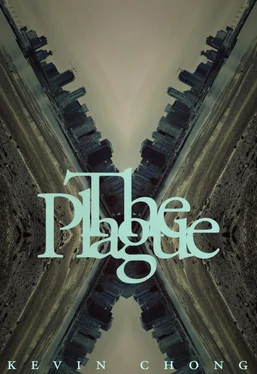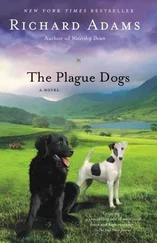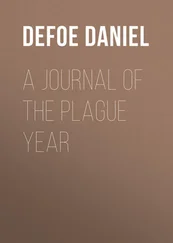It’s something that’s happening downtown Vancouverites had said during a recent string of drug deaths that already felt like a bygone era. They did it to themselves. Okay, they didn’t start from the best places, but … Or when homicides reached new highs in the city, and people murdered each other in drive-by shootings at noodle houses, they said, It’s just gang members defending their turf. They’re so professional that hardly anyone innocent ever gets killed. Don’t deal drugs and you’re safe. And now, they ascribed blame to those who fell ill and drew walls around the casualties in order to protect their sense of safety.
During her first week in Vancouver, Megan Tso still considered herself a short-term visitor. Her second engagement, the mysterious but lucrative consulting contract mentioned in the first section of this chronicle, had been delayed. An intermediary for the wealthy man who’d engaged her services apologized for the need to reschedule. In addition to compensating her for her extra days, this executive assistant offered to upgrade her accommodations. With this offer, Tso moved into a room with a kitchenette.
Her extended stopover in Vancouver during a public health crisis was an opportunity for reflection. This break happened for a reason, she told herself. She would shake off her jet lag here. She would breathe clean air and enjoy the relatively underpopulated Canadian city.
In the week that ensued, she did the following: She returned the suitcase to a nice old woman; her son accepted the bag, a man with the face and stature of an Egyptian pharaoh who closed the door before she could offer the amusing explanation and apology that she’d planned in the taxi. (The airline delivered her luggage the same day.) She walked the entire length of the Seawall twice. More and more people were wearing face masks in public. She visited the library and read Thucydides’s The History of the Peloponnesian War for hour-long stretches before returning it to its spot on the shelf. She couldn’t help but notice how many people were coughing in the library, coughing into their hands and then typing their queries at the library internet terminals. Afterward, she went to the drug store and bought hand sanitizer. She checked in on Janice Grossman.
Grossman invited her over for a cup of tea. What Tso really wanted to know was the condition of Farhad Khan. Grossman had discovered him prone on the floor of his kitchenette next to an upturned chair. Tso had inched behind her into Khan’s apartment, which smelled like sour laundry and empty liquor bottles. Khan lay slumped on the floor, cheek-and-jowl flush against the same checkerboard tiles she’d seen in Grossman’s kitchen. Around Khan’s neck was a tie knotted around a light fixture that had dislodged from the ceiling. Tso had called 9-1-1, anxious because she would have to pay roaming fees. Khan sat up. He looked to be in his mid-twenties, but seemed to have stepped out of a film noir. He had dark, slightly protuberant eyes, a stubbly muzzle, and wavy hair, slicked and shiny. There was a gash on his head from the fall, and he was mumbling to himself in Persian. Grossman crouched beside him, her concern alternating between her tenant and the hole in the ceiling that she had to fix. When Tso left, around the same time the police and ambulance arrived, Grossman’s father stood outside his door, muttering under his breath. Occasionally, he shrugged his shoulders as though he were commiserating with himself.
“Farhad’s in my spare room right now, napping,” Grossman now told Tso. “He has no family, you see, and someone needed to be responsible for him. Otherwise he’d rot in the hospital. My father thinks I’m a sucker.”
“I can see his point.”
“I know how it seems—it’s like Janet all over again. But it’s easy to judge Farhad. We come from stable countries. He’s from Iran, you might recall. Who knows how he’s suffered?” Grossman admitted that she had not asked Khan about his background or suffering. In their period of temporary cohabitation, Khan had not volunteered much about his life except for an interest in dance remixes of Adele songs. In the two days that he had stayed with Grossman, he spent most of his waking hours on the phone. Earlier that morning, he’d left the building for the first time.
They were on their second pot of Lemon Zinger when Khan returned. They could hear him singing, in Persian—syllables parked against a silent drum machine beat—as he bounded up the stairs. Tso had only seen Khan once, spread out on his kitchen floor, and didn’t notice how tall he was. Once he removed his jacket, Khan entered Grossman’s kitchen. He presented his landlady with a bouquet of flowers purchased from a corner store. Although he was still gaunt and pale, he was clean-shaven, and the circles under his eyes had begun to fade. He introduced himself to Tso as though they hadn’t met.
Khan said that he’d spent the day visiting friends about a business opportunity. “It was good to go outside,” he told them. “It wasn’t too cold.”
“You’re not worried about getting sick?” Tso asked.
“Sister,” he addressed her, as he looked in Grossman’s refrigerator for a bottle of beer, “I have been sick my whole life. Now I’m better. I’ve got nothing to hide.”
“You might be the happiest person in Vancouver,” Grossman suggested. She admired the flowers in their coloured cellophane.
Khan chuckled mirthlessly. He stood by the refrigerator wearing only a white T-shirt and jeans. His arms were lean and wiry. His phone began to buzz and he took the call in his own room.
Grossman invited Tso to ride on her city tour the next day. She initially declined, preferring instead to read at the library, but when she discovered Thucydides missing from his regular place, she changed her mind and headed toward the tour’s starting point at Canada Place. Grossman pulled up, driving a converted school bus and wearing a microphone around her neck.
There were about a dozen people waiting with Tso. A couple of men wore chambray shirts and khaki shorts and seemed obviously American. There were Chinese tourists and German visitors too. Grossman took their fares. Most of them spread out on the bus.
“Good afternoon, brave visitors to Vancouver,” Grossman told the sparsely filled bus as it left the curb. Her elocution became brighter, gathering intensity mid-sentence, her words delivered as though she recited them from sheet music. “Thank you for making sure I still have gainful employment. It’s been a little quiet the past week.” She stopped at a light and peered back. “Was it because you couldn’t get a refund? Or are any of you in town for the epidemic?”
There was an anxious pause. The European and Chinese tourists reacted with befuddlement. “We’re here for an Alaska cruise,” one of the ever-smiling silver-haired Americans said. She liked him better than the others. “We’re more afraid of guns than the flu.” Probably from California.
“Welcome to my hometown, the only city I’ve lived in, and I can tell you it’s changed a lot. A mystique has developed around the city—one that might be visible to locals who like to think we live in the best or worst city in the world. Has anyone heard any of these myths?” She did not wait for a reply. “Let me dispel some of them. The first is that everyone here is rich. It’s true that anyone who owns land here, for instance, is a millionaire on paper. And there are truly rich people, of course. But we also have millionaires who line up at the food bank. We have heiresses to million-dollar fortunes driving, for example, tour buses. The second myth is that Vancouverites are notoriously unfriendly. It’s not true, but the city is clique-y. I think of it as a video game where you need to level up by acquiring high-user ratings. When it comes to social equity, inequality is high.”
Читать дальше












